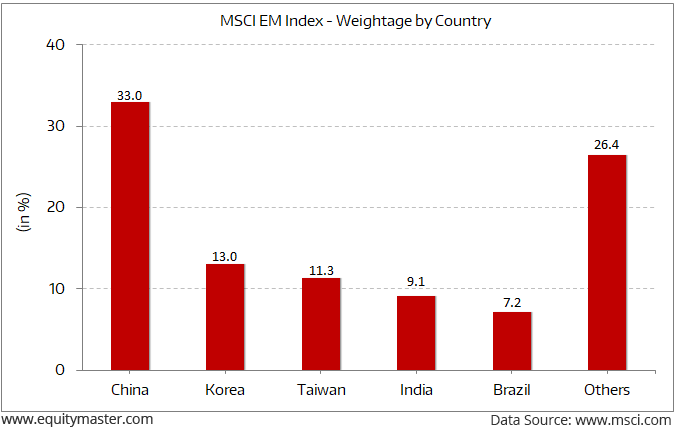India's Third Giant Leap
This Could be One of the Biggest Opportunities for Investors
- Home
- Todays Market
- Indian Stock Market News September 5, 2019
Sensex Opens in Green; Metal and Power Stocks Outperform Thu, 5 Sep 09:30 am
Asian share markets are higher today as Chinese and Hong Kong shares show gains. The Shanghai Composite is up 1.6% while the Hang Seng is up 0.3%. The Nikkei 225 is trading up by 2.3%. Wall Street's main indices rebounded on Wednesday, after robust economic data from China, easing tensions in Hong Kong and British lawmakers' approval of a law to delay Brexit provided relief to investors worried about global growth.
Back home, India share markets opened higher tracking global peers. The BSE Sensex is trading up by 151 points while the NSE Nifty is trading up by 62 points. The BSE Mid Cap index and BSE Small Cap index opened up by 0.3% and 0.2% respectively.
Except realty stocks, all sectoral indices have opened the day on a positive note with metal stocks and power stocks witnessing maximum buying interest.
The rupee is currently trading at 71.95 against the US$.
The Indian rupee clawed back some lost ground on September 4, gaining 27 paise to settle at 72.12 against the US dollar in line with a recovery in domestic equities.
At the interbank foreign exchange market, the rupee opened at 72.20 a dollar and advanced to a high of 71.96 during the day.
It finally settled at 72.12, up 27 paise over its previous close of 72.39.
The dollar index, which gauges the greenback's strength against a basket of six currencies, slipped 0.4% to 98.65 weighed down by weak factory activity in the US, which shrank in August for the first time since August 2016.
Gains in domestic equity market also supported the local unit and helped it recoup some of its losses of the previous session.
The rupee on September 3 dropped by 97 paise to more than nine-month low of 72.39 a dollar.
Speaking of currencies, Vijay Bhambwani, editor of Weekly Cash Alerts, tells you the main reasons why not to trade commodities and currencies the same way you would trade equities. Here's an excerpt of what he wrote...
- Currencies are traded in pairs and the most liquid is the USDINR. Currencies are traded in four decimal points just as bonds are. The international derivative trader's association has indicated that forex may be traded in 6 decimals in the coming few years.
It takes months sometimes for the currency pair to pass the next round figure, say from 70 to 71.
Can you really trade commodities and currencies alike or for that matter, equities and currencies alike? Definitely not!
To know more, you can read Vijay's entire article here: Is Trading in Equities, Commodities, and Currencies the Same?
In the news from the economy. As per India Ratings, foreign funds flow into India is expected to face headwind over the near-to-medium term despite the accommodative global monetary policy stance and rolling back of tax surcharge on FPIs by the government.
As per the reports, a gamut of factors, such as slower-than-expected demand growth in major economies, geopolitical and trade tensions and a gradual weakening of the economic growth prospects in India have contributed to a build-up of risk aversion, which has impeded the demand for emerging market debt instruments.
Foreign investors have been on selling spree in the Indian market amid uncertainty over FPI tax and global trade worries.
Finance Minister Nirmala Sitharaman in her maiden Budget levied the tax surcharge on Foreign Portfolio Investors (FPIs), which led to fund outflows of Rs 83.2 billion on a net basis in the first half of August. In July, FPIs had pulled out Rs 29.9 billion from the Indian capital markets (both equity and debt).
According to Ind-Ra, China would continue to crowd out capital flows to emerging markets like India and consequently, FPI inflows would remain under pressure.
While India might occasionally experience pockets of inflows, global capital inflows are unlikely to pick up sustainably, the agency noted.
Ind-Ra opined that the shift in global monetary policy conditions to a relatively accommodative stance is unlikely to revive capital flows into emerging markets like India.
The reason for this are many.
From slowdown in the economy to the budget...
But, can the real reason be external?
In March this year, the Morgan Stanley Capital International (MSCI) announced it would increase the weightage of Chinese A shares (stocks trading in mainland China) by 4 times. These shares form around 10% of total Chinese shares in the index.
FPIs investing in passive funds follow the MSCI EM index for investments in emerging markets.
A comparison of India's weightage with China in the MSCI EM index provides us clues on the recent outflows from FPIs.
It also explains the announcement to reduce promoter shareholding in the budget.
Will we see a similar FPI inflow into Indian stocks?
Will India be the Next Hot FPI Destination?
Looking at the recent inflow into the Chinese stock markets, it seems very likely.
To know what's moving the Indian stock markets today, check out the most recent share market updates here.
For information on how to pick stocks that have the potential to deliver big returns, download our special report now!
Read the latest Market Commentary



Equitymaster requests your view! Post a comment on "Sensex Opens in Green; Metal and Power Stocks Outperform". Click here!
Comments are moderated by Equitymaster, in accordance with the Terms of Use, and may not appear
on this article until they have been reviewed and deemed appropriate for posting.
In the meantime, you may want to share this article with your friends!